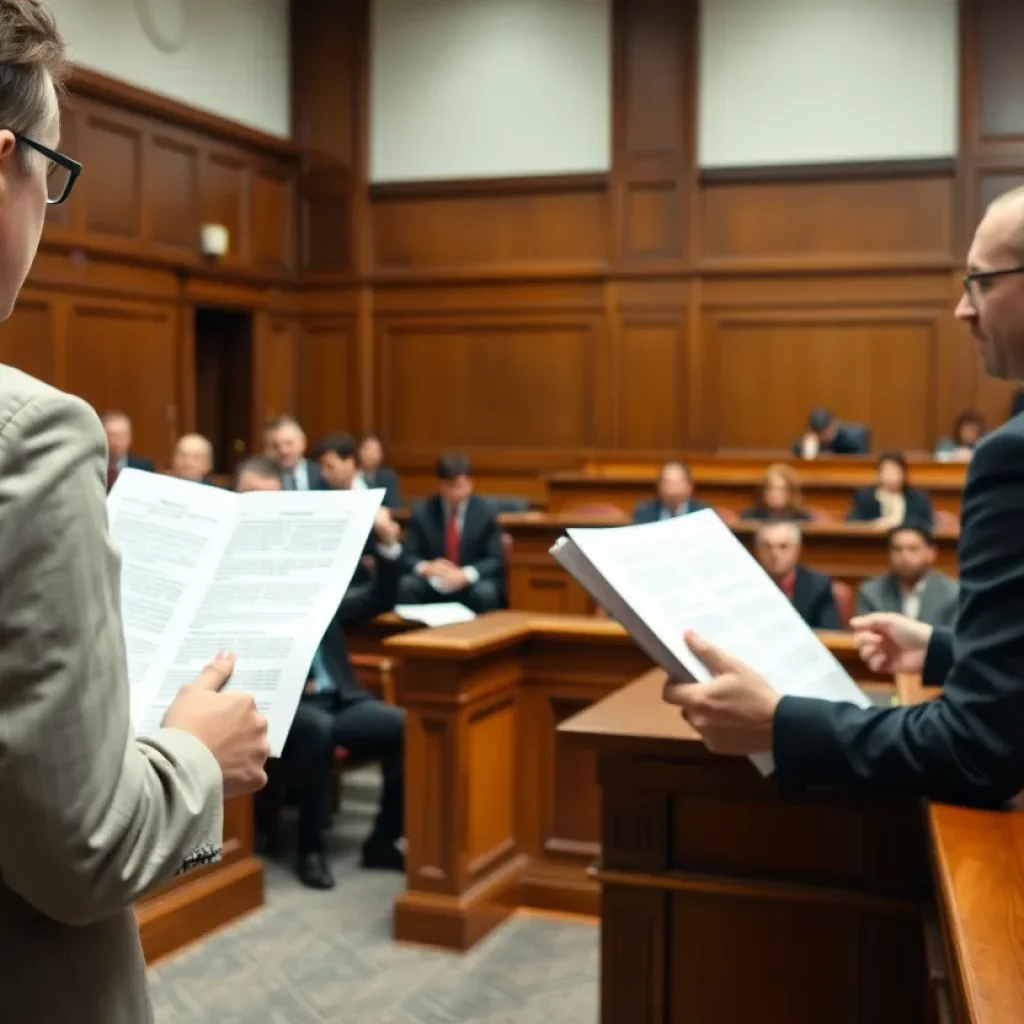News Summary
Louisiana’s new Senate Bill 231 transforms personal injury compensation by revising the collateral source doctrine. Effective from June 30, 2025, the law limits jurors to assessing only actual medical reimbursements, aiming to ensure courtroom transparency while potentially lowering car insurance premiums. Governor Jeff Landry advocates for balance in protecting injury victims’ rights while curbing excessive claims. Although businesses support the reform, trial lawyers are concerned about its impact on injured plaintiffs. This law is part of broader initiatives to enhance safety and accountability in the legal and insurance systems in Louisiana.
New Law Alters Personal Injury Compensation in Louisiana
In a significant shift in personal injury law, Louisiana Governor Jeff Landry has enacted Senate Bill 231, which introduces stringent regulations on the compensation that injured individuals can claim in personal injury lawsuits. Signed into law on July 2, 2025, this legislation redefines how damages, particularly in cases involving third-party payments like health insurance, are calculated, putting an end to the previous norms that often resulted in inflated claims.
Revising the Collateral Source Doctrine
Under the newly implemented legislation, the approach to the collateral source doctrine has been revised. Previously, jurors were permitted to consider the entire amount billed by medical providers when calculating damages. This meant that the sums presented to juries often included amounts not actually paid by insurers, leading to so-called “phantom damages.” With the recent changes, juries are now tasked with evaluating only the actual sums reimbursed by health insurance companies, thereby curtailing excessive compensation claims.
Governor’s Rationale for the Legislation
The governor has characterized this legislative move as a push towards greater courtroom transparency and a method to drive down car insurance premiums in the state. Emphasizing the need for a balance, he asserted that the law aims to safeguard the legitimate rights of individuals who have suffered injuries while simultaneously curbing inflated medical charges typically introduced during trials.
Business Community’s Support
The Louisiana Association of Business and Industry (LABI) has publicly endorsed the new bill, considering it a vital step toward achieving fairness within the civil justice system. Their enthusiasm marks a turnabout from 2024, when LABI voiced disappointment over Governor Landry’s veto of similar legislation. The organization now praises the new law as a positive development for businesses facing exorbitant legal costs.
Opposition from Trial Lawyers
Lowering Insurance Premiums
Senator Mike Reese, who sponsored the bill, aims to minimize auto insurance premiums by limiting damage awards to verifiable losses. The law also seeks to streamline litigation processes, which could lead to decreased legal expenses, thereby potentially benefiting clients and insurers alike.
Implementation and Wider Reform Initiatives
The law took effect on June 30, 2025, shortly after the governor’s endorsement. In addition to SB 231, a comprehensive slate of insurance reform bills aimed at reducing both property and auto insurance premiums has been introduced. One bill offers a $10,000 state income tax credit for homeowners who install certified fortified roofs, addressing property protection and risk mitigation. Another significant reform enhances the authority of the Insurance Commissioner, enabling them to reject excessive rate increases imposed by insurance companies.
New Regulations on Distracted Driving
To further bolster safety and reduce insurance claims, a new law has been enacted prohibiting drivers from using their cellphones while operating a vehicle. This initiative aligns with the overall goal of not only reducing road accidents but also minimizing frivolous insurance claims associated with such incidents.
Looking Ahead
As these changes unfold, there remains a sense of uncertainty surrounding whether the reforms will effectively lower insurance rates, a point Governor Landry himself has acknowledged. Nevertheless, the blend of legislative efforts aims to provide tangible benefits for the public while steering clear of fostering an environment that favors trial lawyers or insurance companies. The overarching goal of these measures appears to be the enhancement of fairness and accountability within Louisiana’s civil justice landscape.
Deeper Dive: News & Info About This Topic
HERE Resources
Nevada’s New Workers’ Compensation Laws Impacting Lawyers and Clients
Law Firms Enhance Responsiveness: New Study Insights
Lawyer Defends Sean ‘Diddy’ Combs Amid High-Profile Trial
MyPhillyLawyer Wins Top Honors at Philly Favs Contest
Understanding Michigan’s No-Fault Auto Insurance System
Sean ‘Diddy’ Combs Faces Life-Altering Charges in Federal Trial
Virginia Implements New Auto Insurance Law Benefiting Motorists
Long Island Lawyers Shaping the Future of Law
Lawyer Secures $3 Million Verdict Against Johnson & Johnson in Mesothelioma Case
Georgia’s Tort Reform Revolution: What Lawyers Need to Know
Additional Resources
- WVUE: Louisiana Insurance Reform
- Wikipedia: Insurance Reform
- Louisiana Governor’s Office
- Encyclopedia Britannica: Insurance
- Reuters: Louisiana Insurance Laws
Author: STAFF HERE CHARLESTON
The CHARLESTON STAFF WRITER represents the experienced team at HEREcharleston.com, your go-to source for actionable local news and information in Charleston, Charleston County, and beyond. Specializing in "news you can use," we cover essential topics like product reviews for personal and business needs, local business directories, politics, real estate trends, neighborhood insights, and state news affecting the area—with deep expertise drawn from years of dedicated reporting and strong community input, including local press releases and business updates. We deliver top reporting on high-value events such as the Spoleto Festival USA, Charleston Wine + Food Festival, and the MOJA Festival. Our coverage extends to key organizations like the Charleston Metro Chamber of Commerce and the Charleston Museum, plus leading businesses in tourism and maritime industries that power the local economy such as South Carolina Ports Authority and the Charleston Visitor Center. As part of the broader HERE network, including HEREaiken.com, HEREbeaufort.com, HEREchapin.com, HEREcharleston.com, HEREclinton.com, HEREcolumbia.com, HEREgeorgetown.com, HEREgreenwood.com, HEREgreenville.com, HEREhiltonhead.com, HEREirmo.com, HEREmyrtlebeach.com, HEREnewberry.com, HERErockhill.com, HEREspartanburg.com, HEREaustin.com, HEREcollegestation.com, HEREdallas.com, HEREhouston.com, and HEREsanantonio.com, we provide comprehensive, credible insights into South Carolina's dynamic landscape.










